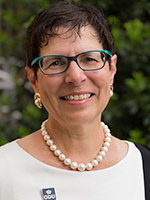Sleepless in Seattle – and Everywhere Else, Too

For educators and those who prepare them, sleepless nights over recent national events have unfortunately become all too frequent. The most recent public discourse regarding the confirmation of the new U.S. Secretary of Education has certainly contributed to our level of concerns. In a recent op-ed I wrote that was published in The Virginian-Pilot, “Educational Objects in the Mirror,” I asked if perhaps these events are distracting us from our real worries. As dean of the Darden College of Education at Old Dominion University (VA), I realize that what really keeps me up at night is my state and local concerns – especially the growing shortage of teachers.
The need for more teachers is a cry that I hear on a daily basis from local schools. Recently, I was aghast to find out that in my state, the Commonwealth of Virginia, elementary teachers are now included on the shortage list. Those of us in the profession recognize the significance of the state’s shortage of elementary teachers. If that group of new professionals is diminishing, we really do have some sleepless nights ahead of us.
The reasons behind teacher shortages are complex, although many people point to an obvious culprit in the factor of low salaries. I do not deny the significance of salary as a major issue in recruiting and retaining teachers, but there are not only nuances but also other statistics that should shock us and call all of us to action.
On the supply end, national data from UCLA’s Cooperative Institutional Research Program show a decreasing percentage of incoming college undergraduates who plan to major in education. In 1970, this number was 11%. It remained steady through 1990 (10%) and 2000 (11%), but last fall, the percentage plummeted to 4.2%. This decrease should be sounding alarms in its own right, yet it becomes even more disturbing when considered alongside projections about future teacher shortages.
The Learning Policy Institute recently published reports on teacher shortages across the United States. They cite many factors – including compensation – for why the supply of new educators is not meeting schools’ demand. In most states, this imbalance is poised to worsen, especially as more teachers near retirement or are otherwise likely to leave the profession. When combined with the overall weak interest in entering the profession, this troubling information is a call to action.
Before we can sleep again, we need to regroup, refocus, and redeploy our energies on the real work ahead of us. To combat the challenges of low retention, increasing retirements, and a dwindling pipeline into the profession, we’ll have to take greater action within our communities. A collective response is critical; no one group or organization will be able to solve this issue alone. Might we summon the power of a state or national media campaign? Work collaboratively with our PK-12 partners, houses of worship, and community groups to help promote the profession of teaching? What might happen if we all spoke in one voice about our passion for teaching and the unparalleled opportunity to make a significant difference in the lives of others?
My plea to you is to stop losing sleep over what might happen with the new administration in Washington, DC, and turn your focus instead to the real needs of our schools – where you have the power to make a real difference. If we turn our attention to taking positive action in this way, we may all sleep better – in Seattle and everywhere else, too.
Jane Bray is 2016-2017 chair of the AACTE Board of Directors.






